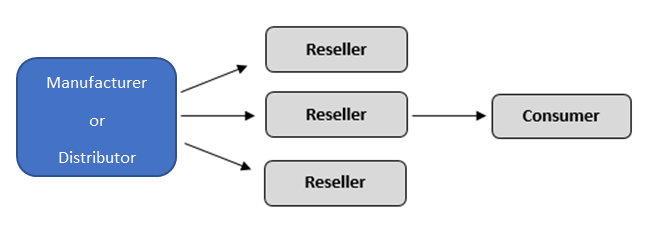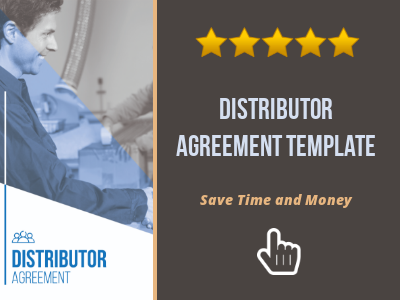Popular culture teaches us all we need to know about the power of distribution. The recent HBO hit “Snowfall” tells the story of Franklin who becomes the lynchpin of the Los Angeles crack cocaine scene in the 1980’s.
Franklin starts off small time, making “rock” and selling it through friends in his local area. But as he grows and starts making more rock, he has to find more and more ways of getting it to market.
Now Franklin is a pretty smart guy, so after weighing up his options, he decides to enlist the services of leading dealers in other L.A. neighbourhoods – guys who already have local knowledge and established customers.
Franklin solves his distribution problem and simplifies his supply chain which allows him to concentrate on manufacturing (and not getting busted by the cops!)
Of course, this is an extreme example*, but if you manufacture products too then you might be considering how you can get more of your product into the marketplace.
When you engage third parties (like distributors and resellers) to sell your products, you improve your visibility in the marketplace, drive additional sales and increase turnover.
Whether you are looking to expand into international markets, or keeping things local, focusing on the needs of the end-user will guide your decision as to whether engaging a distributor or a reseller, or both, is the best strategy for your business.
A distribution channel is a series of distributors and resellers all moving product along the path to the end user.

So, is it better to utilise a distributor or reseller to market your product and are there any real differences between them?
Distributors
The role of a distributor generally involves the storage and purchasing of product from the manufacturer or supplier. Product is then on-sold to other wholesalers or resellers. Usually, the distributor’s scope is narrower than that of a reseller, as they will specialise in a particular industry or market.
Sometimes described as a wholesaler, a distributor is similar to that of an agent who creates a relationship between the manufacturer and resellers (sometimes known as a retailer) in the distribution channel.
The relationship between the manufacturer and the distributor is often one of exclusivity, meaning no other organisation is authorised to market or sell the product within a certain territory or industry. Consequently retailers and or resellers can only source the product from the distributor.
Unlike resellers, Distributors will often need to reach and maintain certain sales or order targets in order to retain their distributor status.
Distributors can also provide additional after-sales services such as warranty servicing and repairs, as well as marketing or branding services.
Depending upon the arrangements the distributor has with its retail network it may or may not sell directly to the end user.
Resellers
Similar to distributors, resellers may purchase from the manufacturer directly or through a distributor at ‘wholesale’ prices and on sell to the consumer at a higher ‘retail price’.
Resellers find buyers for your product, either at a wholesale level or to the end-user or consumer. Resellers create value by leveraging sales channels and effectively act as a ‘middle-man’, handling the sales, marketing and supporting the product in the marketplace.
The reseller trades the product on behalf of the manufacturer or the distributor, meaning it is quite common to engage more than one reseller. If you consider major brands like Target, Harvey Norman and Bunnings they are operating in the market as resellers.

The term reseller is quite broad and is sometimes used to mean someone anywhere in the supply chain either at a wholesale or retail level.
So which one is right for your business? Distributor or Reseller?
Basically, it comes down to your business strategy as to which relationship is better suited.
A distributor is usually better suited to a business that has no representation in a particular territory where the product supplier requires additional after-sales services or seeks greater control over the marketing of the product.
Resellers on the other hand are appropriate for a business that seeks a partnership with an established company or wishes to sell to different global markets concurrently. However, a reseller arrangement generally has greater risks than that of a distributor, but the profit margin may be greater due to the lack of exclusivity and the ability to engage several resellers at once.
Whether you engage with a distributor or reseller, it is important to consider the responsibilities of each party and adequately document them in a formal agreement.
* In no way, do we condone or promote Franklin’s line of work. It merely serves as a great illustration for the purposes of this information.



